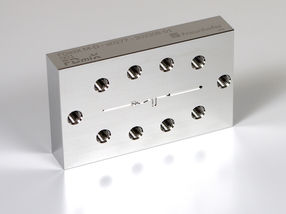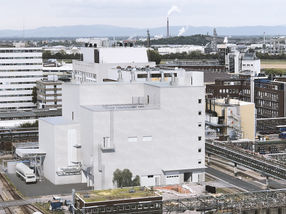Genzyme Announces Final Terms of FDA Consent Decree
Genzyme Corporation announced that the terms for the consent decree regarding the Allston manufacturing plant have been finalized. These terms are in line with the company’s expectations announced last month. The consent decree is subject to approval by the United States District Court for the District of Massachusetts.
“We appreciate the guidance the FDA provided over the past year as we work to restore the agency’s confidence in our ability to operate the Allston plant at the highest standards, and return to reliable product supply for patients.”
Genzyme will pay an up-front disgorgement of past profits of $175 million. The company will continue to ship Cerezyme® (imiglucerase for injection) and Fabrazyme® (agalsidase beta), which are manufactured, filled and finished in Allston, as well as Thyrogen® (thyrotropin alfa for injection), which is filled and finished at the plant. In the United States, distribution of Thyrogen will be based on medical necessity until product filled and finished at another facility is available. The FDA has developed a Dear Healthcare Provider letter describing the patients for whom FDA considers Thyrogen to be medically necessary. This letter will be included in shipments of Thyrogen that are filled and finished in Allston.
In addition, the consent decree requires Genzyme to move fill/finish operations out of the Allston plant for Cerezyme, Fabrazyme and Thyrogen sold within the United States by November 28, 2010, and by August 31, 2011 for products sold outside of the United States. Genzyme will work closely with regulatory authorities globally with a goal of meeting these deadlines. Should Genzyme not be able to meet these deadlines, the FDA can require the company to disgorge 18.5 percent of revenue for these products.
Last November, Genzyme announced plans to transfer all fill/finish activities from Allston to other locations. Genzyme began to utilize excess capacity at its facility in Waterford, Ireland where it currently fills 80 percent of Cerezyme supply. Last week, Genzyme received regulatory approval to fill and finish Myozyme® (alglucosidase alfa) produced at the 160 L scale at the facility in Waterford and will no longer be conducting fill/finish operations for Myozyme in Allston. In addition, Genzyme has begun the process of transferring all remaining filling activities from Allston to an existing Genzyme contract manufacturer.
Last year, Genzyme began implementation of a comprehensive remediation plan to improve quality and compliance at the Allston facility. This plan was submitted to the FDA in October of 2009. Under the terms of the consent decree, a plan to complete the remediation will be drafted by Genzyme with the assistance of its current third-party consultant, Quantic. This plan will be submitted to the FDA for approval, and will include ongoing oversight from Quantic.
Genzyme expects this remediation plan will require approximately 2 - 3 years to complete, with milestones throughout this period. If remediation actions are not complete by these milestones, the FDA can require Genzyme to pay $15,000 per day, per affected drug, until these compliance milestones are met. Once the remediation plan is fully completed, FDA will require five years of oversight and annual reports submitted by Quantic.
“We continue to make significant progress both to improve manufacturing and quality systems in Allston and transfer fill/finish activities to other locations, working as expeditiously as possible through the regulatory pathways globally,” said Genzyme’s Chairman and Chief Executive Officer, Henri A. Termeer. “We appreciate the guidance the FDA provided over the past year as we work to restore the agency’s confidence in our ability to operate the Allston plant at the highest standards, and return to reliable product supply for patients.” Genzyme has launched a website, www.genzymetransformation.com, containing information on additional changes being made within the company with the goal of strengthening the organization for the future.
Genzyme is currently shipping Cerezyme at approximately 50 percent of demand and approximately 30 percent of demand for Fabrazyme. Genzyme plans to provide a more detailed assessment of supply for both Fabrazyme and Cerezyme in June that will factor in Fabrazyme working cell bank performance, and the impact, if any, of the consent decree on product release times.
Genzyme is assessing the impact of several factors on its total financial guidance for 2010, including the company’s decision to pursue strategic alternatives for three of its businesses, ongoing expense reduction measures, the announced $2 billion share buyback, the impact of foreign exchange rates, and the supply of Cerezyme and Fabrazyme. Genzyme continues to expect to exit the fourth quarter of 2010 at a non-GAAP EPS rate of $1.00 per share.





















































